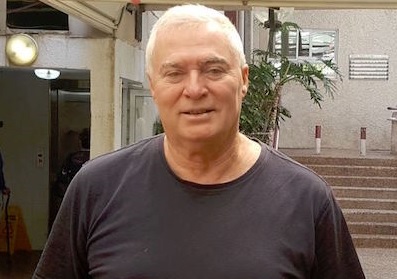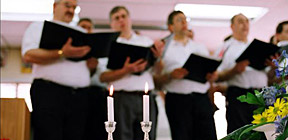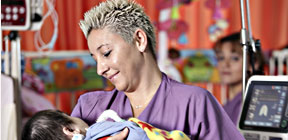
Yom Hazikaron
Amnon Sharon, captured in the Yom Kippur War, is a rehabilitated
Reuth patient who also volunteers at the hospital.
Amnon, 70, a resident of Kiryat
Ono, married with eight grandchildren, was admitted to the Reuth Rehabilitation
Hospital five years ago as a result of a stroke, from which he suffered
paralysis on his left side.
“When I arrived at Reuth Hospital
in a wheelchair, and when the professional staff explained to me the
rehabilitation process that was waiting for me, I told myself that from here I
was only going out of the hospital on two feet. I will go through the
process and return to myself, just as I survived the captivity and went home.”
And so it was! “I was discharged
from the Reuth Hospital, an independent and functioning person, after an intensive
rehabilitation period of six months. Except for weakness in the left side, I am
very active.” Amnon dances every day, paints and sculpts, conducts classes and
workshops on survival in the IDF and in schools, alongside volunteering in
Reuth.
“I was a 26-year-old soldier, a
soldier in the armored corps when I was captured. I spent eight months in
Damascus, five of them in solitary confinement. During this very difficult
period, I developed a method of survival and today I call it physiotherapy for the
soul and transfer it to the patients I meet once a week at Reuth Rehabilitation
Hospital.”
“During the rehabilitation period
in Reuth I met patients with despondency and despair who thought that their
situation was the end of the world. I found myself giving them tools to train,
how to deal with pain, from my experience of survival. With the help of the
charming Ruthie Hoffman, a social worker at the hospital, I started helping
patients.
Once a week I meet with them and accompany them throughout the
period of rehabilitation in day care. Lots of personal conversations, lots of
guided imagery to deal with the challenges ahead. When a patient tells me, ‘I’m
in pain’ – I know what pain is. I know it closely, physically and mentally. The
trick is how to deal with the situation as positively as possible.
The reactions of the patients
thrill and amaze me every time. They write me thank-you letters, communicate
and share my experiences.
One of the most important
highlights in my conversations with them is to teach them not to hope but to
believe. Always believe in themselves that everything will work out, even if
there are problems. The first rule is that if something bad happens, after the
crying and the sorrow, you have to gather yourself and say: ‘These are the
limitations and with this you win!’ This way saved me and I lived there from
the first moment I was in Damascus.

